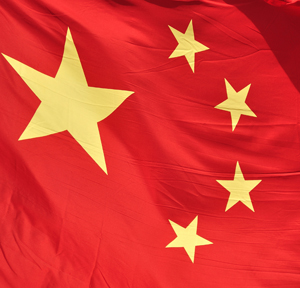Investment Strategies
China's Equities Set To Rally With Leadership Tussles Out Of The Way - Fidelity

Equities in China should rally with the power struggles in the country's ruling Communist Party out of the way, argues Fidelity Worldwide Investment.
The new leadership of Communist-run China ends some uncertainty and is positive for the Asian giant’s stock market, particularly as equities currently trade near historically cheap levels at around 9 or 10 times expected earnings, predicts Fidelity Worldwide Investment.
China’s once-in-a-decade leadership change has been unveiled at the 18th National Congress at the Communist Party of China. Besides the recent US presidential elections, the very different, and secretive, choice of leadership in China has been a major talking point for investors and economists, particularly as Chinese gross domestic product growth has slowed in recent quarters, although it has started to stabilise.
Under the changes, Xi Jinping – currently vice-president - has been appointed as state president and Li Keqiang is expected, says Fidelity, to become the new premier in March next year. The latter is currently vice-premier.
“I think the new leadership will be willing to accept lower GDP growth as it will focus on quality rather than quantity of GDP growth. This means a continued focus on the domestic consumer and further enforces structural growth opportunities in consumer-related stocks,” Martha Wang, portfolio manager at the Fidelity China Focus Fund, said in a note.
“Overall, I see this event as positive for the Chinese market, and believe that there are many companies with strong fundamentals, which have been indiscriminately punished by political uncertainty, trading at attractive valuations,” Wang said.
According to its analysis, Fidelity said that historical patterns show that after a leadership change in China, there is a general rise in investment spending; it notes that many provinces and cities have unveiled ambitious spending plans.
The country is grappling with how to shift from its recent focus on export-driven growth to a more domestically-driven policy. For years, China has adopted a managed exchange rate regime to help exports, causing controversy in countries such as the US where politicians, such as recently defeated presidential candidate Mitt Romney, criticised it for being unfair.
Earlier yesterday, the yuan, or renminbi, fell from a 19- year high, after the country’s central bank cut its reference rate to a level to keep the currency within its trading bands. The People’s Bank of China lowered its daily fixing by 0.04 per cent to 6.2905 per dollar, 1.04 per cent less than the previous closing level of 6.2252. The currency is allowed to diverge from the set rate by a maximum 1 per cent, fell 0.13 per cent, the most since 23 July, to 6.2334 in Shanghai, according to the China Foreign Exchange Trade System (source: Bloomberg).
Chinese economic data has shown signs of a recovery after a period of deceleration. In October, for example, its services industries sector rebounded from the slowest expansion in at least 19 months, Fidelity noted. The country’s purchasing managers’ index rose to 55.5 in October from 53.7 in the previous month. Chinese GDP rose by 7.4 per cent in the third quarter from a year before.
One sign of possible greater focus on encouraging inward investment and fund flows, after a period of outflows, might be seen from recent data showing a record level of investment quotas being issued to foreign firms. (To view that story, click here.)
The world's second-largest economy, however, continues to draw brickbats from critics for its human rights record. According to the campaign and research group, Human Rights Watch, "China continues to be an authoritarian one-party state that imposes sharp curbs on freedom of expression, association, and religion; openly rejects judicial independence and press freedom; and arbitrarily restricts and suppresses human rights defenders and organisations, often through extra-judicial measures".
